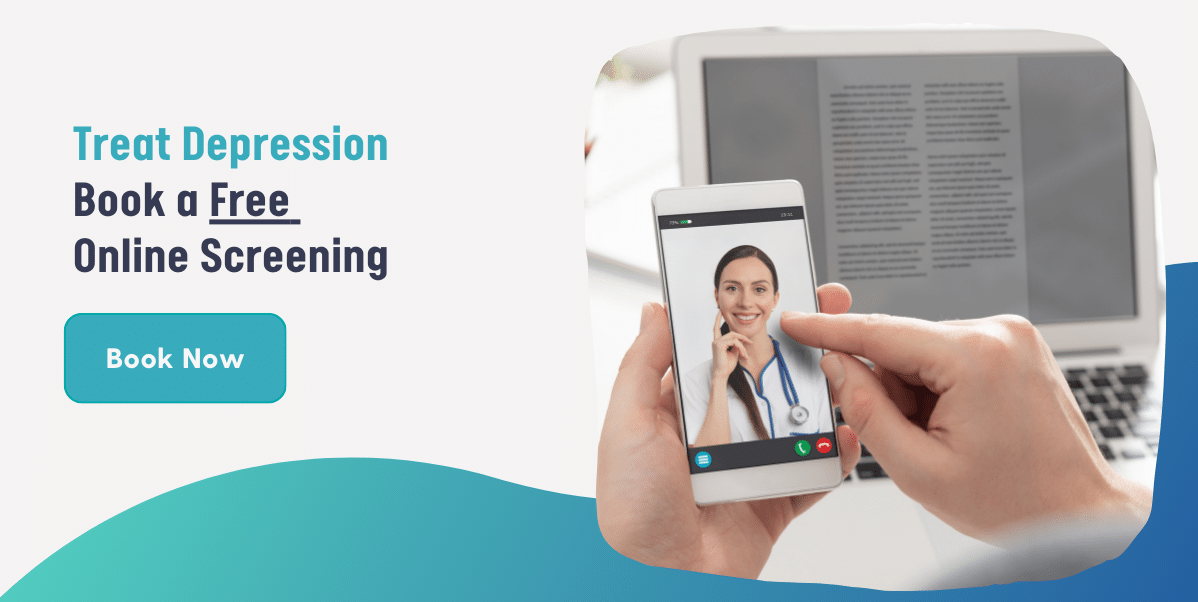
Receiving a diagnosis of Major Depressive Disorder (MDD) can feel overwhelming, but it’s also a crucial first step toward healing. An MDD diagnosis means that you’ve been experiencing persistent symptoms like a pervasive low mood, loss of interest or pleasure, changes in sleep or appetite, fatigue, feelings of worthlessness, or difficulty concentrating, for at least two weeks, significantly impacting your daily life. The good news is that MDD is highly treatable, and a wide range of effective strategies can help you manage symptoms and reclaim your well-being.
The most effective treatment for MDD often involves a multifaceted approach, combining various therapeutic strategies tailored to your individual needs. There’s no one-size-fits-all solution, and finding what works best for you is a journey that involves collaboration with healthcare professionals.
Understanding the Pillars of MDD Treatment
When approaching an MDD diagnosis, treatment typically revolves around several key pillars:
Psychotherapy (Talk Therapy)
Often the cornerstone of treatment, psychotherapy provides a safe space to explore thoughts, emotions, and behaviors contributing to depression. It equips you with coping skills and strategies to navigate challenges.
- Cognitive Behavioral Therapy (CBT): This therapy helps you identify and change negative thought patterns and behaviors that contribute to depression. It focuses on present-day problems and developing practical solutions.
- Interpersonal Therapy (IPT): IPT focuses on improving your relationships and social functioning. It addresses how relationship issues, grief, or role transitions might be impacting your mood.
- Psychodynamic Therapy: This approach explores how past experiences and unconscious patterns might be influencing your current emotional state and behaviors. It aims for deeper insight into the root causes of depression.
Medication Management
Antidepressant medications can play a vital role, especially for moderate to severe MDD, by helping to balance brain chemistry. A qualified psychiatrist or prescribing physician will work with you to find the right medication and dosage.
- Selective Serotonin Reuptake Inhibitors (SSRIs): These are often the first line of treatment and work by increasing serotonin levels in the brain.
- Serotonin-Norepinephrine Reuptake Inhibitors (SNRIs): These affect both serotonin and norepinephrine, two neurotransmitters involved in mood regulation.
- Atypical Antidepressants: This category includes medications that work in different ways than SSRIs or SNRIs and can be effective for specific symptoms or if other medications aren’t tolerated.
Finding the right medication and dose can take time, often involving a period of trial and error. Open communication with your doctor about side effects and symptom changes is crucial.
Lifestyle Adjustments and Self-Care
While not standalone treatments, these elements are powerful complements to therapy and medication, significantly impacting your recovery and long-term well-being.
- Regular Physical Activity: Exercise is a potent mood booster. Even moderate activity, like a daily walk, can release endorphins and reduce depressive symptoms.
- Balanced Nutrition: A healthy diet supports overall brain health. Limiting processed foods, excessive sugar, and caffeine, and focusing on whole foods, can positively impact mood.
- Adequate Sleep: Depression often disrupts sleep patterns. Establishing a consistent sleep schedule and practicing good sleep hygiene can significantly improve your mood and energy levels.
- Stress Management Techniques: Learning to manage stress through practices like mindfulness, meditation, deep breathing exercises, or yoga can prevent anxiety from exacerbating depressive symptoms.
- Building a Support System: Connecting with trusted friends, family, or support groups can provide invaluable emotional backing and reduce feelings of isolation.
- Engaging in Enjoyable Activities: Actively scheduling time for hobbies and activities that bring you pleasure, even if you don’t feel like it at first, can help reactivate your reward system.
Advanced Therapies for Treatment-Resistant MDD
For individuals whose MDD hasn’t responded to initial rounds of medication and psychotherapy, specialized treatments offer new hope.
- Transcranial Magnetic Stimulation (TMS): A non-invasive procedure that uses magnetic fields to stimulate nerve cells in the brain involved in mood control. It’s an outpatient therapy with generally mild side effects.
- Esketamine (Spravato) Nasal Spray: A ketamine derivative administered in a certified healthcare setting under supervision, often providing rapid relief for severe, treatment-resistant depression.
- Electroconvulsive Therapy (ECT): While often misunderstood, ECT is a highly effective treatment for severe depression, especially when other options have failed or in cases requiring a rapid response. It is performed under general anesthesia.
The Importance of a Personalized Treatment Plan
Successfully treating an MDD diagnosis is about creating a personalized strategy. This typically involves:
- Comprehensive Assessment: A thorough evaluation by mental health professionals to understand the specific nature and severity of your depression, as well as any co-occurring conditions (like anxiety, PTSD, or substance use).
- Collaboration with Your Care Team: Working closely with your psychiatrist, therapist, and other healthcare providers to choose therapies that align with your symptoms, preferences, lifestyle, and any other health conditions.
- Patience and Persistence: Healing from MDD is a process. It takes time to find the right combination of treatments, and there may be ups and downs along the way. Consistency with your treatment plan and open communication with your team are vital.
- Regular Monitoring and Adjustments: Your treatment plan isn’t static. Your providers will regularly assess your progress, monitor for side effects, and make adjustments as needed to optimize your recovery.
An MDD diagnosis is not a life sentence. With the right treatment approach, support, and self-care, individuals can significantly improve their symptoms, regain their quality of life, and find lasting well-being.

FAQs About Treating an MDD Diagnosis
What’s the difference between depression and clinical depression (MDD)? Clinical depression, or MDD, is a more severe and persistent form of depression that meets specific diagnostic criteria. It involves symptoms that significantly impact daily functioning, unlike temporary sadness or “the blues.”
Can I recover from MDD without medication? For mild to moderate MDD, psychotherapy alone can be highly effective. For moderate to severe cases, a combination of medication and therapy often yields the best results, but treatment plans are always individualized.
How long does it take for MDD treatment to show results? Response times vary. Psychotherapy can start providing coping strategies relatively quickly, while medication often takes 2-8 weeks for full effects. Advanced therapies like Esketamine can show rapid improvement.
Will I need to be on medication forever if I start it for MDD? Not necessarily. Many people take antidepressants for a period to stabilize their mood and then, with their doctor’s guidance, gradually taper off. Others may need longer-term treatment to prevent recurrence.
What should I do if my current treatment isn’t working? Communicate immediately with your healthcare provider. It’s common to need adjustments to medication dosage, a switch to a different medication, or a change in therapy approach.
Are there lifestyle changes that really help with MDD? Absolutely. Regular exercise, a balanced diet, adequate sleep, stress management, and maintaining social connections are crucial complementary strategies that can significantly enhance treatment outcomes.
Is MDD curable, or is it something I’ll always live with? While there’s no “cure” in the sense of completely eradicating the potential for future episodes, MDD is highly manageable. Many people achieve full remission of symptoms and can live fulfilling lives, often with ongoing maintenance strategies.
Schedule Your Complimentary TMS Screening Today
At My TMS Therapy, we’re here to help you restore your energy and joy. Our compassionate team will guide you through every step of the process.
Call us at (877) 548-8081 or contact us online to book your screening today.
Sources:
National Institute of Mental Health. (n.d.). Major Depression. https://www.nimh.nih.gov/health/statistics/major-depression
American Psychiatric Association. (n.d.). What Is Depression? https://www.psychiatry.org/patients-families/depression/what-is-depression
Mayo Clinic. (2023, July 29). Depression (major depressive disorder) – Diagnosis and treatment. https://www.mayoclinic.org/diseases-conditions/depression/diagnosis-treatment/drc-20356013


